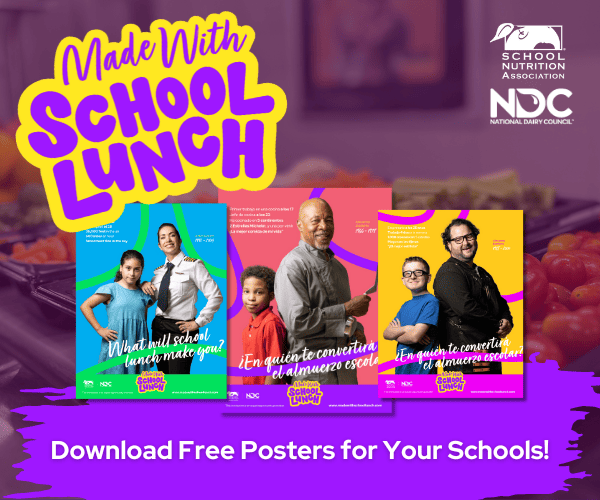Not everyone on your team is the same—and that’s a good thing! A workplace reflecting different cultures, ages and abilities means you have a wide variety of perspectives and skills. With all these differences, however, can come some challenges. So, how does a successful workplace ensure that everyone receives the treatment and resources they need to not only do their job successfully but also feel valued while they’re doing it? This month’s issue of School Nutrition explores how you can create a workplace that encourages togetherness, so everyone can work as a team toward your goal of feeding students. You’ll find all this valuable insight in our November/December issue highlighting these topics:
Workplace Culture in School Nutrition: What does it mean to have diversity and cultural representation in K-12 school nutrition programs? Hear specific guidance and advice from Doug Massey and Alisa Roman, two directors who’ve successfully headed initiatives like language support and diversity hiring to attract (and retain!) some of the best talent while strengthening their school community.
Celebrating the Multigenerational Workforce: When you’re working with a team that encompasses many generations, your team is likely a strong one. Different generations bring diverse perspectives that prove beneficial for solving problems and achieving your goals, from the tech-savviness and fresh ideas of younger employees to the institutional knowledge and historical context that older employees have. By encouraging collaboration and learning between generations, you can create a work culture that thrives in a quickly evolving market.
Food Focus: Honoring Indigenous Flavors: Food can be a powerful way of understanding culture, and by serving Indigenous foods, you create a direct link between students and lessons they’re learning in social studies while challenging stereotypes or misconceptions students may have about Native American culture.
Click here to read SN’s November/December 2024 issue to discover all of those articles, and more!
Related Articles

SNA Recognizes Recipients of National Employee, Manager and Director Awards
Read More





